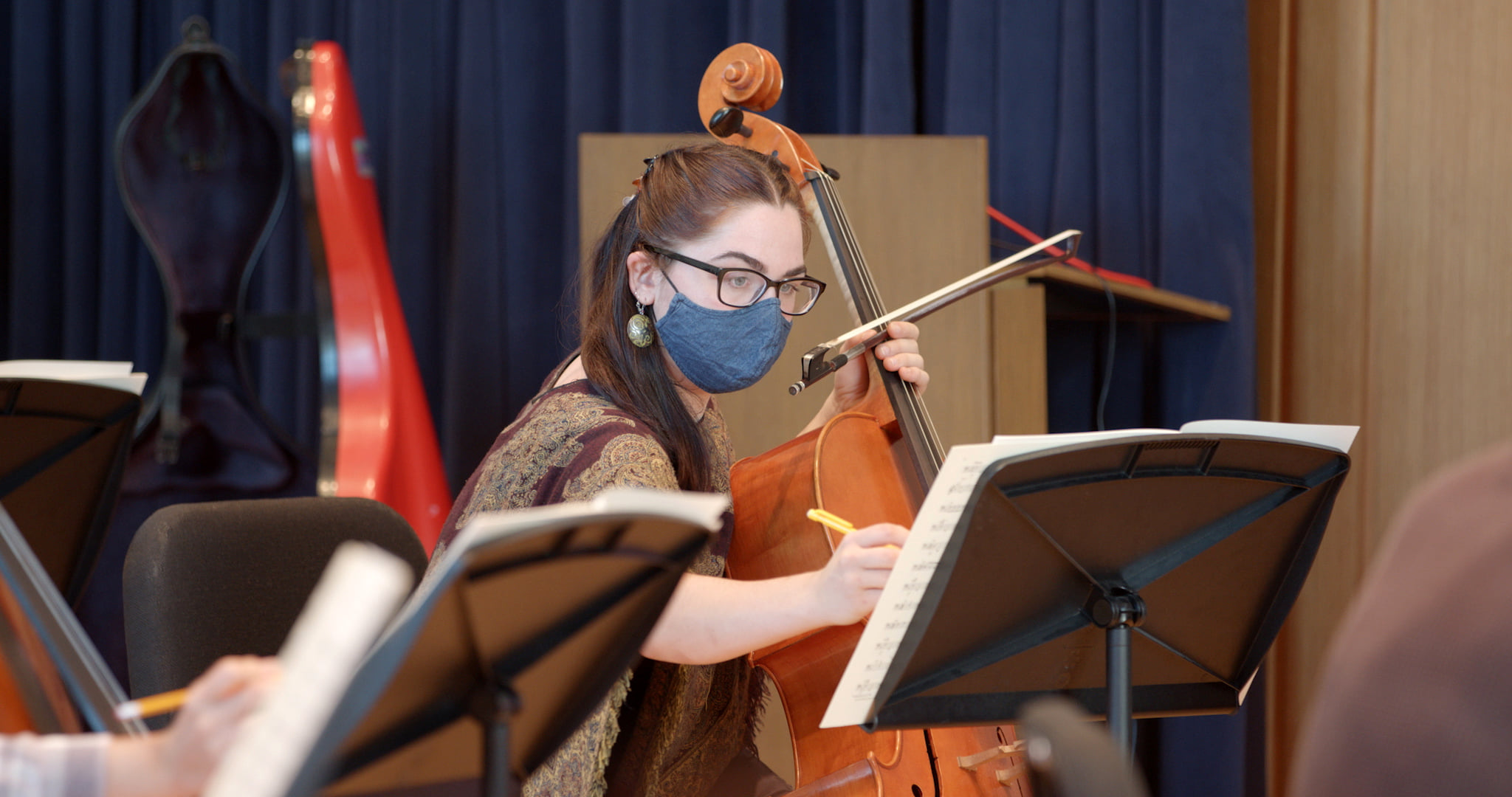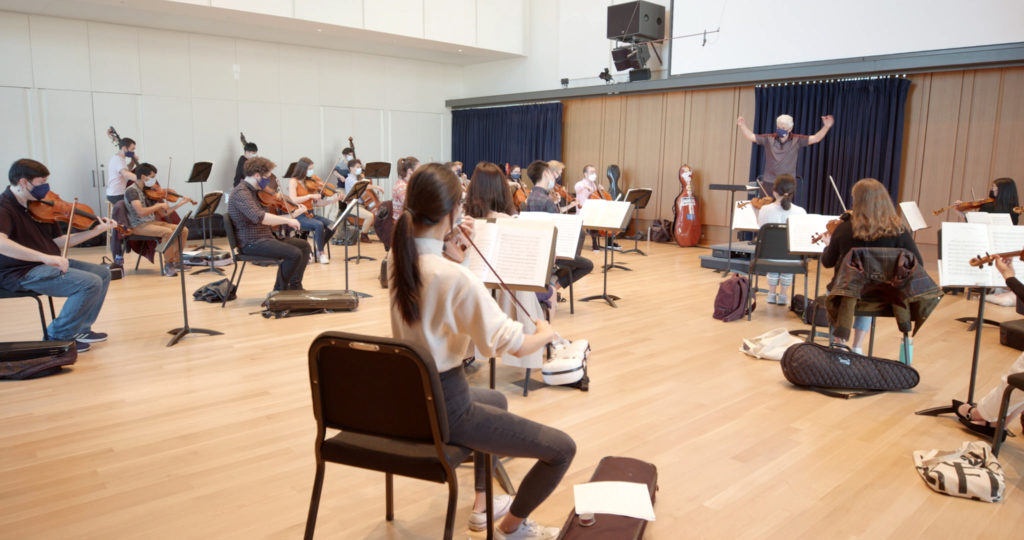
Courtesy of Katie Kelley
On Oct. 14, the School of Music’s performance block — a period during which students take exclusively performance classes — began.
This semester, School of Music administrators have implemented a two-block plan for hybrid instruction to allow students to continue their course of study while keeping public safety in mind. This included an academic block from Sept. 8 to Oct. 13, during which academic courses were remotely in session, and a performance block from Oct. 14 to Nov. 26, during which students are taking performance classes in person.
“During the performance block at the School of Music, the students and faculty are participating in in-person ensemble activities to the fullest extent possible given health considerations,” said Melvin Chen, deputy dean of the School of Music.
Students are required to live on campus and attend classes in person during the performance block. They were asked to arrive on campus on Sept. 30 in order to finish a two-week quarantine before classes began.
According to Chen, students will be playing and rehearsing in string orchestra and receiving coaching in chamber music throughout the performance block. They will adhere to safety regulations including mask wearing and social distancing. Many groups are also involved in making recordings that will be available to the public at a later time.

However, a large portion of the student body cannot participate in the performance block due to safety protocols. These include musicians whose instruments — such as woodwinds, brass and voice — do not allow them to wear masks while playing.
Pianist Rachel Breen MUS ’22 noted that normally, music students have an “unending cycle” of performance preparations and competitions. But with nearly all live performances cancelled, students are in an unfamiliar position.
“Being a sonic art, music is particularly difficult to teach and learn over the internet,” Breen said. “Even with teachers making their best effort, musicians simply can’t receive the same quality of education through Zoom. Microphone technology is costly, and doesn’t yield the same result as live instruction.”
Although School of Music students can sign up for slots in individual practice rooms, the pandemic also resulted in the loss of music rooms where students can make music together. Breen likened these practice facilities to “second homes,” since some students can spend more than 12 hours a day on their instruments. She added that students socialize during breaks and learn by watching their colleagues. The “sparse, focused” environment of a practice room cannot entirely be replicated at home.
Jon Salamon MUS ’23, a harpsichordist in the Doctoral of Music Arts program’s post-residency phase, said it was initially difficult for musicians to deal with the changes brought by the pandemic. But they have come up with innovative solutions and remained positive.
“The loss of activity and purpose has been harrowing — especially when the pandemic first began, it was very difficult to practice or compose and stay motivated,” Salamon said. “But there is hope. So many musicians have started performing online, offering innovative musical experiences to audiences, all the while keeping themselves busy and engaged.”
A second academic block at the School of Music will resume online from Nov. 30 to Dec. 9, to be followed by a final exam period. Private lessons and studio seminars will be offered during this period and the decision to conduct class in person will be left to the professor and student. Students are encouraged to take their academic courses from home.
Marisol Carty | marisol.carty@yale.edu







